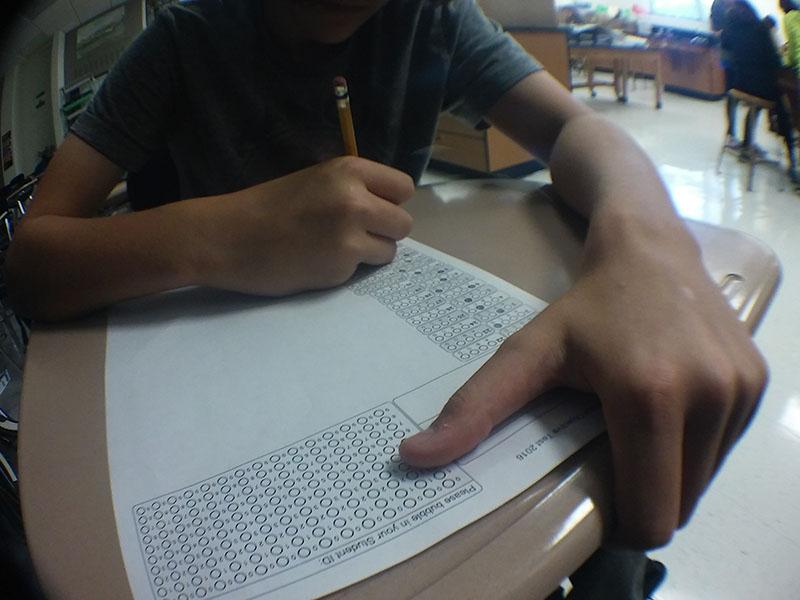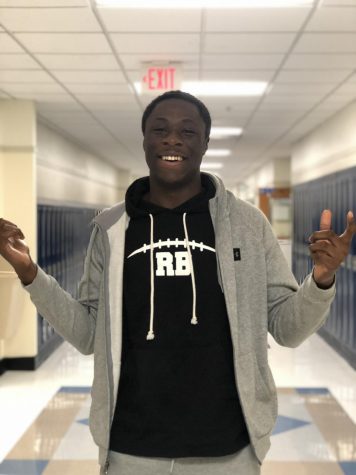RBHS institutes first-ever common assessment exams
Garrett Wiemer takes a Biology exam.
October 27, 2016
During the week of October 10 through 14, all students at RBHS took their first ever quarter common assessment exams for each class.
“My understanding is that we have always had semester and final exams, but we have not branched out to assessing our students at the quarter until now,” said Kylie Gregor, Assistant Principal of Curriculum and Instruction.
When Gregor was hired she pushed for this change with Principal Kristin Smetana. Together, they brought the plan through RB’s Leadership Council, a council made of administrators and Instructional Coaches.
Gregor then contacted several of the top high schools to ask if they were engaging in quarterly assessments.
“While none of them currently engage in this practice, all of the schools I contacted said they were trying to move in that direction because they, also, see the need for this type of assessment,” said Gregor.
According to Gregor, the reason for this new system is to check in with students to see what they’re learning. Based on the results, teachers can adjust their lesson pacing and plans if they appear to be going too slow or too fast for some students.
The common assessments allow students who need more help to get it, and enriches and advances those who fly through their learning.
“Making the assessments common was important because we want students to have similar experiences in their classes regardless of their teachers. For instance, a student in English 9 should learn the same skills no matter who their teacher is,” Gregor said.
The new system has gotten mixed reviews, with students on either side of the spectrum.
“It takes up so much class time,” said Robert McDermott, a freshman who opposes the change.
However, not all students find it to be a bad thing.
“I think it’s positive overall because it’s giving the administration and faculty a way to measure our academic growth,” said senior Natalie Giannini.
Some of the teachers seem to be on the same page.
“I think it’s important to make sure that there are certain things that kids are learning in each class regardless of who’s teaching it,” said Kevin Turk, a social science teacher.
The teachers Clarion interviewed seem to support the new system, saying that it can only benefit lesson plans for both teachers and students.
“I think at the end of the day it’s gonna be a positive change because bottom line it’s going to enhance a lot more teacher collaboration,” said math teacher Ian Robins.
The only form of criticism came from social science teacher Carley Tarantino, who suggested that multiple choice might not be the best way of measuring student academic growth.
Either way, Gregor is excited for this change, and feels that it will benefit the educational experience for the students.
“I think this is an important change for RB. As education changes, we know that students learn in different ways and at different paces. In order for teachers to be able to take that into consideration when they teach, they have to know how students are doing with the skills in class,” said Gregor.



